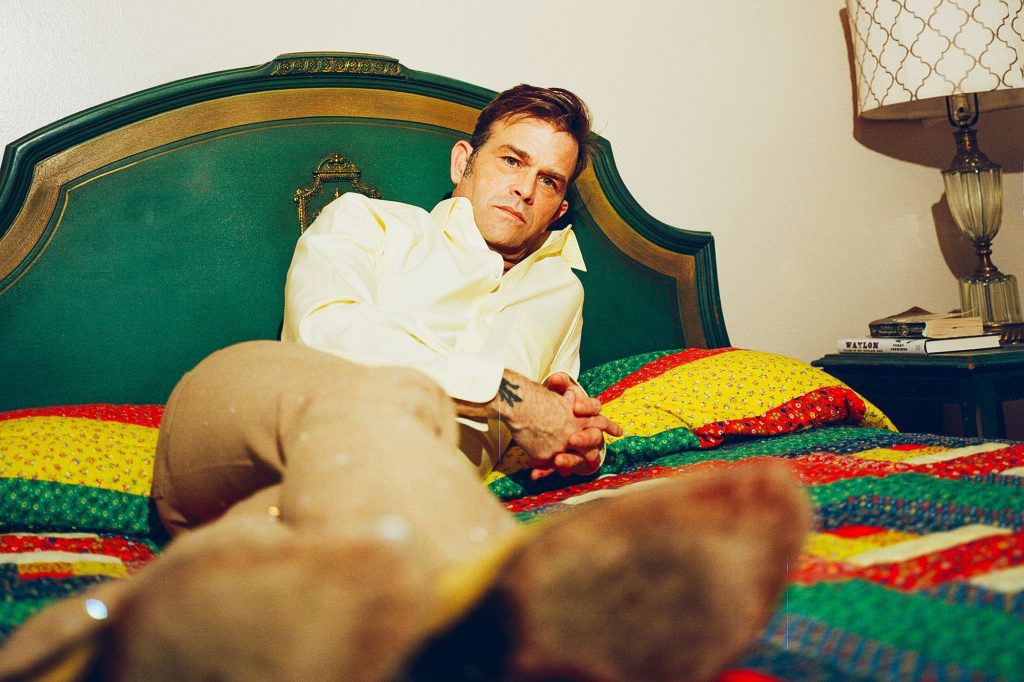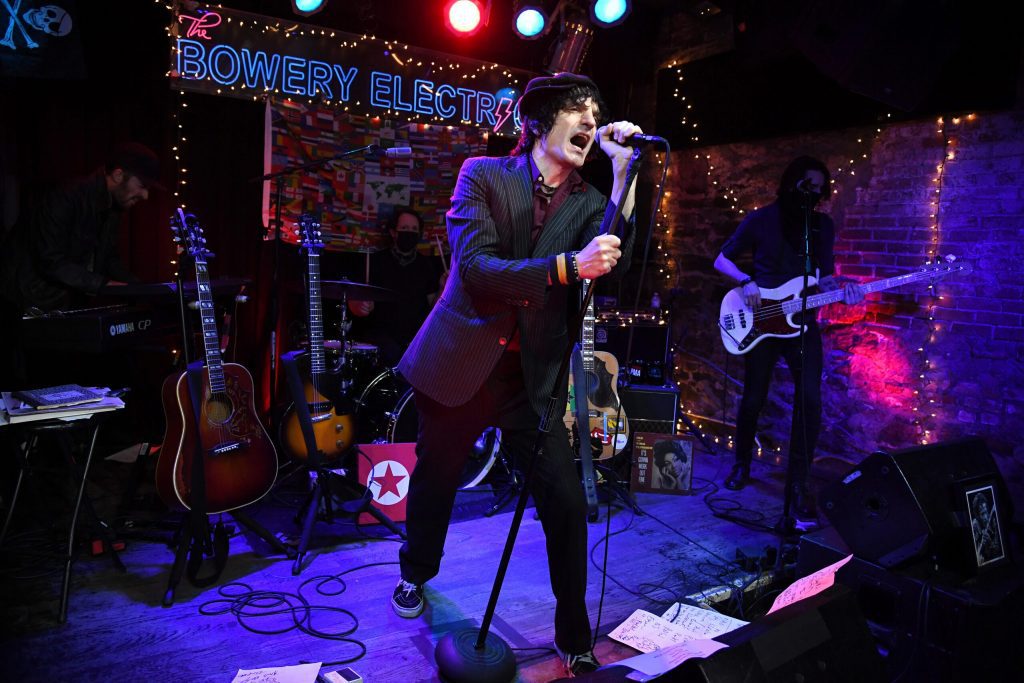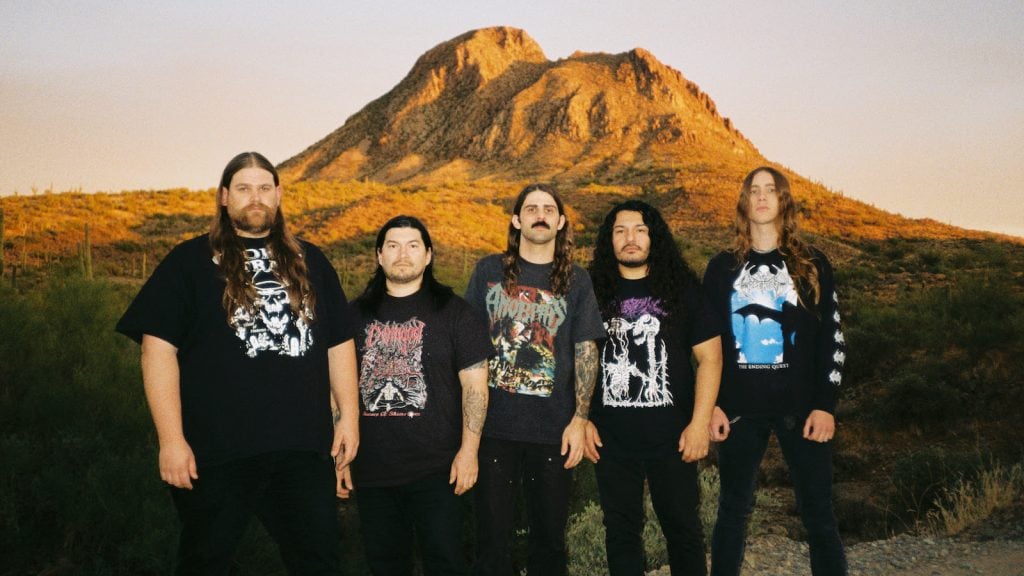
Waylon Payne Confronts Old Ghosts and Addiction in 3 Devastating Songs
The title of Waylon Payne’s upcoming second album is a mouthful. The Nashville-based singer-songwriter’s Blue Eyes, the Harlot, the Queer, the Pusher, & Me derives its name from a bleak period in Payne’s life when he was in the grips of a debilitating drug addiction and grieving the death of his mother, “Help Me Make It Through the Night” singer Sammi Smith. One of Payne’s friends in their self-described “drug den” would regularly sing Kris Kristofferson’s “The Silver Tongued Devil and I,” prompting Payne to spit out his wordy phrase one day. He hung onto it as an album title, but figured it probably wouldn’t fly.
“I thought it was too long. I thought it was too weird,” Payne says on a FaceTime call from his home in Nashville, recounting the period after he sobered up and began recording the project with producers Frank Liddell and Eric Masse. “But as time went on, they were just kind of like, ‘No, this is yours. You take it.’”
The resulting album chronicles Payne’s journey into and back out of hell, dealing with his addiction and his experiences as a gay man in direct, honest fashion. At 12 tracks, it’s more or less a chronological telling of his troubled story, before coming to some resolution and reflection in the end. The opening three tracks were released in mid-June. On Thursday, Act II debuts with the next three songs: “All the Trouble,” “Dangerous Criminal,” and “Shiver.”
“The first six songs are pretty much that whole searching and needing some sort of something, not knowing what it is,” Payne says. “The second half of the album kind of gets the hope. It gets to a point where you start working through things.”
Leading off the new tracks is the haunting “All the Trouble,” a blues-evoking number that begs for a little relief from one’s mountain of problems. Payne penned the song with Adam Wright and Lee Ann Womack, who originally cut it for her album The Lonely, the Lonesome, and the Gone. Where Womack’s veers toward the apocalyptic, Payne’s version is tighter and more intimate, with his voice and guitar high in the mix.
“Frank [Liddell] has always really liked my guitar playing for some reason. And he is really the biggest reason that I have comfort in being able to stand out there alone and do it these days,” Payne says of his producer, who is also Womack’s husband and producer. “And I felt that Lee Ann had a hit with it, sort of, and we were Grammy nominated. And I was not going to step on it. Nuh uh, fuck that. No way. But my version is completely different and it’s got a different feel.”
In “Dangerous Criminal,” Payne takes a look inward at his propensity toward addiction, and how easy it is to fall back into those destructive patterns.
“There’s a line in there that says, ‘You’re always just one push away/You’re always just one step away,’” he says. “And it’s true. My life could go back to hell with just one plunge of the needle. Thank God that’s not my life anymore.”
“A lot of people helped me put myself back together,” he adds. “There are a lot of organizations like MusiCares, the Musicians Health Alliance, all of these people really played a big part in helping me figure it out. It’s important to tell people that it’s not something to be ashamed of, to ask for help either, because it is a sickness.”
“Shiver,” which marks a midway point in the album, brings in some plaintive strings and tells of a lonely, crushing trip to Las Vegas where Payne sought out a male companion and then left for his plane feeling even more burned out and broken. “That was my subtle way of saying I got a hooker in Vegas and he didn’t get mad at me because I couldn’t perform and cried all night,” Payne says, beginning to laugh. “He still made me pay him. So whatever that’s capitalism, alive and well.”
Payne has threaded his experiences as a gay man into his work all along, but they’ve sometimes slipped past the people who couldn’t recognize them. “Those are the things that I have been writing about for years, that if you just take a little time to listen, they’ve always been there,” he says.
Blue Eyes, the Harlot, the Queer, the Pusher & Me arrives in full on September 11th via Carnival. Of course, due to the pandemic, Payne won’t be able to get out and promote it with a tour. He says maybe that’s all right — the work, like its striking title, is capable of leaving a mark on its own.
“I believe in this record because it helped me live and it’s my thoughts over the past 25 years,” he says. “I think that if people get a chance to listen to it, maybe that’ll make just as much of an impact.”




